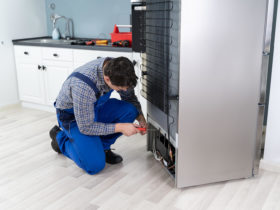Believe it or not, choosing your kitchen equipment is actually a big deal. We live in a time of constantly growing consumerism and mass production of dynamically cheapening goods. Such an approach towards needed merchandise results in a decrease in quality and safety level of used materials.
Getting the best cookware is crucial to keep your family and yourself healthy. Fried omelettes with butter and chives are a nutritious breakfast as long as you don’t use a carcinogenic Teflon-covered pan to prepare them.
What do we have left after renouncing Teflon pans and aluminium pots? A lot of non-toxic and solid alternatives! To make your kitchen cupboard transformation easier for you, we prepared a list of our favourite kinds of excellent quality cooking gear and their possible special requirements.
Stainless Steel Pans

Providing your very own cooking station with the ultimate stainless steel cookware will make you feel like a pro chef! Have you ever seen a kitchen in Gordon Ramsay’s restaurant? You can find stainless steel cookware all over the place. What’s so amazing about this kind of material that even famous chefs use such gear so often?
The durability of stainless steel pans, pots and knives are unbelievable. The material is resistant to extreme temperatures, weight, falls, abrasion, and corrosion. It’s also super easy in maintenance — once washed after using, looks brand new and clean!
Stainless steel is a wonder cookware material for one more reason — recyclability. Since with every decade, we’re becoming more and more environmentally aware, we’re all trying (or at least should be trying) to limit buying and producing new things in order to decrease waste of products and particular materials. Thanks to waste segregation we can provide constant and efficient circulation of material.
Cast Iron Skillets

Cast Iron is an old school and reliable material that we know well from our grandmothers’ kitchens. You surely have at least one piece of cast iron cookware that has been in your family for a couple of generations already.
It’s an extremely durable material — even more than stainless steel. Very heavy, resistant to every possible external factor. To last as long as possible, your cast iron pan requires very specific and loving care.
You’ve probably heard that you shouldn’t wash cast iron cookware with dish soap — and that’s partially true. Just partially, because you definitely want to disinfect a pan you just got. Brand new or second-hand — get a solid drop of soap and splash of hot water. Brush it well to make your cooking gear ready for action!
The mysterious part of taking care of cast iron cookware is seasoning. After washing up the dish, let it dry completely. Spread flaxseed oil over the pan surface. Use small amount only and distribute it evenly. Flaxseed oil has the best polymerization properties — it’ll create a hard layer on the dish during the seasoning process.
Put the oiled cast iron piece to the oven (not preheated yet!), set the baking temperature to as high as possible (in my case, that’s nearly 500°F). The moment you’ll see that your oven reached the right temperature, let it bake for another hour. Let the pan cool down in the oven with the door closed.
Repeat the exact process 5-6 more times until you’ll get a nice, smooth and slightly shiny surface. Keep in mind that it’s extremely important to use only a little of the oil, to get an even, solid texture.
Carbon Steel Woks

If you’re an Asian cuisine geek, you must have stumbled upon carbon steel cookware already. You can say that carbon steel is like a combination of stainless steel and cast iron. This material is slightly less durable than cast iron — carbon steel pans and woks especially are thinner and a bit lighter than cast iron skillets. There’s no wonder about that. Imagine preparing stir-fry dishes in heavy iron pans — shaking it up with one hand would be extremely difficult.
Carbon steel cookware may not be as dent resistant as cast iron but it sure is just as long viable if maintained carefully. It also is this kind of cooking gear that requires seasoning about every two years — depends on the intensity of use.
All the described kinds of cookware are easily accessible, so you definitely won’t have problems finding just the right one for your needs. We want to encourage you to re-discover the great variety of more traditional but extremely reliable frying pans — it’s a sensible investment both in solid, durable cooking gear, but also in the maintenance of your health!


















